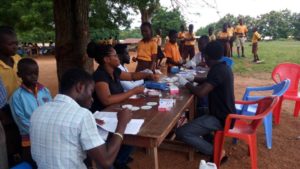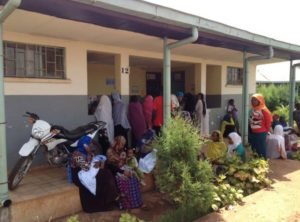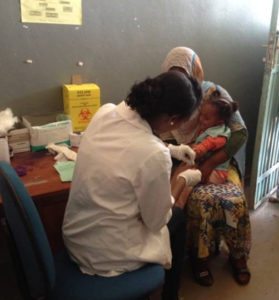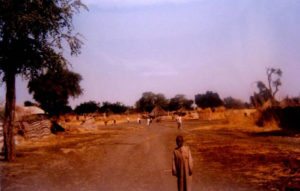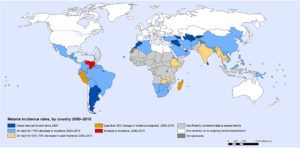Malaria kills nearly 430,000 people a year and the vast majority of them are babies and young children in sub-Saharan Africa. Despite the many interventions in place, malaria burden remains high especially in remote and rural areas where resources are scarce and living conditions are sub-optimal.
My lab focuses on evolutionary genomics of malaria parasites Plasmodium, host-parasite interactions, and molecular epidemiology in African countries. My team employs both field-based and lab-based approaches to address important questions of how malaria infect and spread among humans. Contact me if you would like to be on-board and make a contribution to understanding and tackling malaria!
Global epidemiology of malaria
While countries such as China and Thailand in Southeast Asia are approaching malaria elimination, Africa is still home to 90% of malaria cases and 92% of malaria deaths. In 2016, an estimated $2.7 billion was funded for malaria control and elimination. Plasmodium falciparum is the most prominent malaria parasite in Africa and is responsible for most malaria-related deaths globally. Other parasite species including P. vivax, P. ovale, and P. malariae are also observed in Africa, SE Asia, and South America. The fifth malaria parasite species P. knowlesi is only known to occur in SE Asia. Recently, P. simium has been confirmed in Brazil that switches from a monkey reservoir to human beings causing malaria.
Projected changes in malaria incidence rates, 2000-2015, based on World Malaria Report 2015
(source: World Health Organization)
Malaria life cycle
The life cycle of Plasmodium constitutes the human and female mosquito hosts. Watch the video below to learn the different stages.
